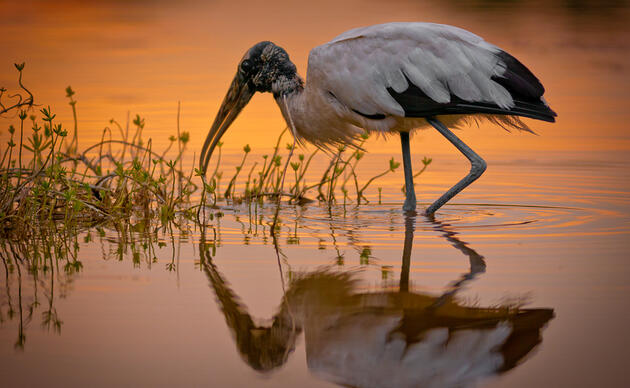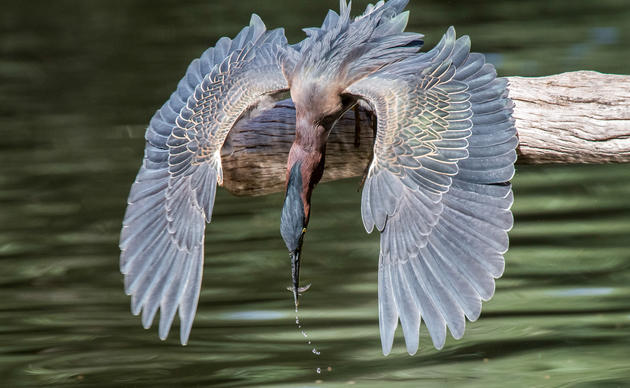COLUMBIA, SC (September 23, 2020) – In response to the S.C. General Assembly's final passage of the Disaster Relief and Resilience Act, S.259, Audubon South Carolina Policy Director Julia Dietz issued the following statement:
“The Disaster Relief and Resilience Act is an example of the kind of commonsense, forward-thinking policy making that South Carolinians deserve, and the legislation serves as a national model for effective resilience and disaster planning. The bill’s focus on nature-based solutions promises the dual benefits of protecting vulnerable communities and generating economic development, while providing vital habitat for birds and other wildlife.
We thank the members in both legislative chambers and are particularly grateful to Senator Stephen Goldfinch, original sponsor of the bill, as well as Senators Chip Campsen, Paul Campbell, Sandy Senn and Marlon Kimpson and House Ways and Means Chairman Murrell Smith and Representatives Leon Stavrinakis, Heather Crawford and Nathan Ballentine for their leadership and vision on this vital issue. We look forward to working together to continue advancing our state’s resilience in the months ahead.”
###
About the Disaster Relief and Resilience Act S.259
Among other things, S.259 establishes a statewide Resilience Revolving Loan Fund program to facilitate the voluntary buyout of repetitively flooded properties thereby allowing homeowners to relocate while returning those flooded properties back to a natural state. Helping citizens move out of the floodplain not only provides a better, safer future for these families, but it also reduces state and local recovery spending and allows the land to be restored and used for flood mitigation in ways that buffer against storm damage, retain and clean storm water, and act as nature’s first line of defense for upland communities.
It also calls for the creation of a state Resilience Office and provides for comprehensive statewide planning and preparation to ensure our state’s resilience against increasingly severe weather and flood events.
Statewide resilience planning, combined with the financial resources to implement necessary resilience measures, will allow our state to protect both our communities and natural resources for generations to come. The bill emphasizes nature-based solutions for flood mitigation, which often represent the most cost-effective option while protecting habitat for birds and other wildlife. For example, NOAA estimated that coastal wetlands prevented $625 million in direct property damages during Hurricane Sandy.
About National Audubon Society
The National Audubon Society protects birds and the places they need, today and tomorrow, throughout the Americas using science, advocacy, education and on-the-ground conservation. Audubon’s state programs, nature centers, chapters and partners have an unparalleled wingspan that reaches millions of people each year to inform, inspire and unite diverse communities in conservation action. Since 1905, Audubon’s vision has been a world in which people and wildlife thrive. Audubon is a nonprofit conservation organization. Learn more how to help at www.audubon.org and follow us on Twitter and Instagram at @audubonsociety.
About Audubon South Carolina
Audubon South Carolina protects birds and the places they need, right here in South Carolina. We’re the state office of the National Audubon Society, which has more than one million members and a century-long track record of success. In South Carolina, we represent more than 26,000 Audubon members and supporters, eight Audubon chapters and bird club partners, two Audubon centers and 22,000 acres of land that we own and manage. Learn more about what we do and how to help at sc.audubon.org. Follow us on Facebook at @ScAudubon, Twitter at @AudubonSc, and Instagram at @audubon_sc.
Contact: Julia Dietz, Julia.Dietz@audubon.org



